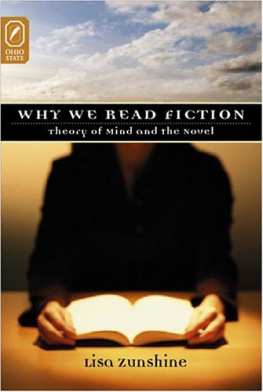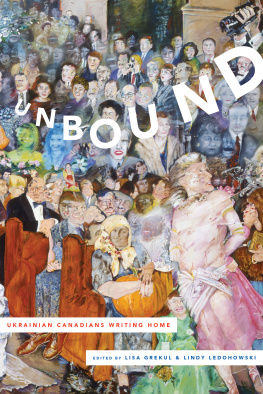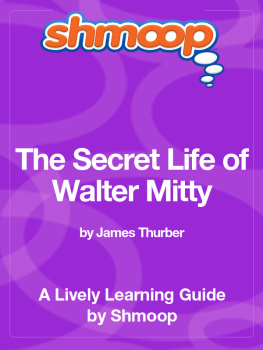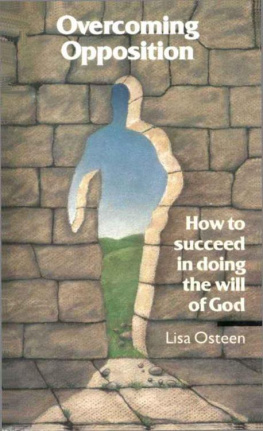Lisa Zunshine - The Secret Life of Literature
Here you can read online Lisa Zunshine - The Secret Life of Literature full text of the book (entire story) in english for free. Download pdf and epub, get meaning, cover and reviews about this ebook. year: 2022, publisher: MIT Press, genre: Art. Description of the work, (preface) as well as reviews are available. Best literature library LitArk.com created for fans of good reading and offers a wide selection of genres:
Romance novel
Science fiction
Adventure
Detective
Science
History
Home and family
Prose
Art
Politics
Computer
Non-fiction
Religion
Business
Children
Humor
Choose a favorite category and find really read worthwhile books. Enjoy immersion in the world of imagination, feel the emotions of the characters or learn something new for yourself, make an fascinating discovery.

- Book:The Secret Life of Literature
- Author:
- Publisher:MIT Press
- Genre:
- Year:2022
- Rating:5 / 5
- Favourites:Add to favourites
- Your mark:
- 100
- 1
- 2
- 3
- 4
- 5
The Secret Life of Literature: summary, description and annotation
We offer to read an annotation, description, summary or preface (depends on what the author of the book "The Secret Life of Literature" wrote himself). If you haven't found the necessary information about the book — write in the comments, we will try to find it.
Lisa Zunshine: author's other books
Who wrote The Secret Life of Literature? Find out the surname, the name of the author of the book and a list of all author's works by series.
The Secret Life of Literature — read online for free the complete book (whole text) full work
Below is the text of the book, divided by pages. System saving the place of the last page read, allows you to conveniently read the book "The Secret Life of Literature" online for free, without having to search again every time where you left off. Put a bookmark, and you can go to the page where you finished reading at any time.
Font size:
Interval:
Bookmark:
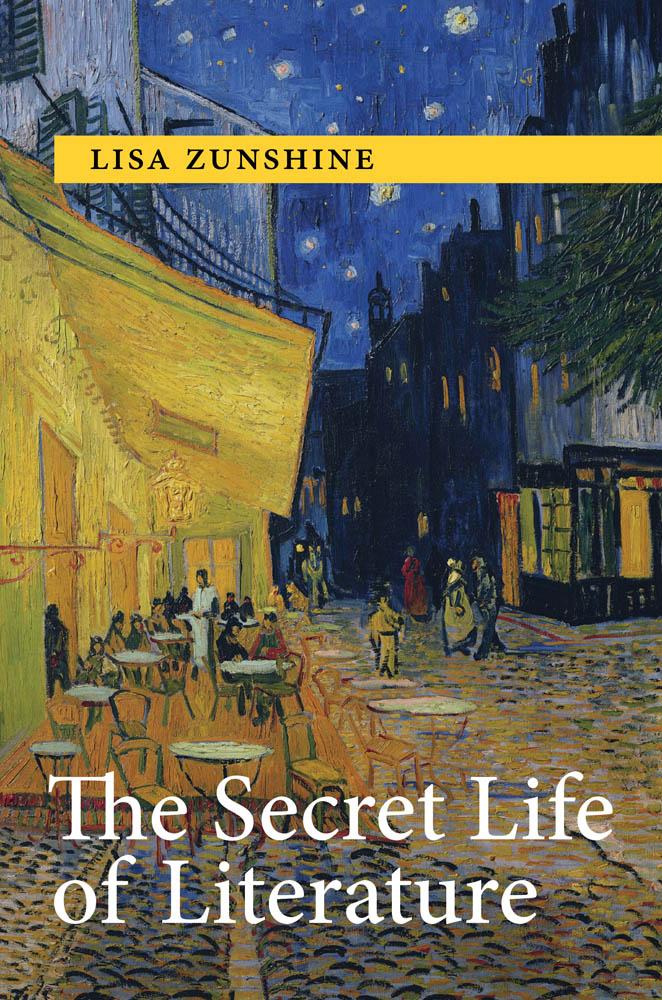
Lisa Zunshine
The MIT Press
Cambridge, Massachusetts
London, England
2022 The Massachusetts Institute of Technology
This work is licensed to the public under a CC-BY_NC_SA license.
Subject to such license, all rights are reserved.

The MIT Press would like to thank the anonymous peer reviewers who provided comments on drafts of this book. The generous work of academic experts is essential for establishing the authority and quality of our publications. We acknowledge with gratitude the contributions of these otherwise uncredited readers.
Library of Congress Cataloging-in-Publication Data
Names: Zunshine, Lisa, author.
Title: The secret life of literature / Lisa Zunshine.
Description: Cambridge, Massachusetts : The MIT Press, [2022] | Includes bibliographical references and index.
Identifiers: LCCN 2021031221 | ISBN 9780262046336 (hardcover)
Subjects: LCSH: LiteraturePsychological aspects. | Cognition in literature. | Psychology and literature. | Narration (Rhetoric)Psychological aspects. | Discourse analysis, LiteraryPsychological aspects.
Classification: LCC PN56.P93 Z86 2022 | DDC 801/.9dc23
LC record available at https://lccn.loc.gov/2021031221
d_r0
.Thompson, Tom Sawyer stamp, 1972
.Frol Skobeev, dressed as a woman
.Hutchins, Rosies Walk
.Frazee, Hush, Little Baby
The Secret Life of Literature brings together cognitive science and literary history to trace a series of patterns that made their early, modest, appearance in literature at least four thousand years ago and have, since then, grown to become the cornerstone of literary imagination, while remaining largely invisible to readers and critics. It shows how social institutions and political regimes can strengthen or weaken the hold of those patterns and how they present in North American, British, Chinese, Russian, German, and Melanesian, as well as ancient Greek, Roman, and Mesopotamian cultures.
Cognitive literary criticism is a relatively new field, yet one already well populated by studies ranging across a variety of genres and cultures. Readers familiar with such studies will notice that this book is organized differently from others. Instead of starting out by reviewing cognitive foundations of my argument, as is often done in such cases, I postpone this review until chapter 3. I do this because I want my readers to be excited about discovering something new about literature, before learning how cognitive psychology and social neuroscience support these discoveries and sharpen their meaning.
A brief road map: The volume is divided into six chapters. Chapter 1 introduces what I call the secret life of literature, showing how specific patterns of mindreading (that is, of the capacity to explain peoples behavior as caused by their unobservable mental states, such as thoughts, desires, and intentions) have come to shape our interaction with novels, plays, and narrative poems, as well as with memoirs focusing on imagination and consciousness. The conversation here is more practical than theoretical: I use numerous examples to train the reader to recognize those mindreading patterns in a variety of literary contexts. This chapter also explores the fraught issue of the difference between popular and literary fiction (e.g., Can a computer program distinguish between the two?) and recounts my experience of taking a graduate seminar in creative writing, at my home university, which I did in order to learn if writers themselves are aware of their role in supporting the secret life of literature. (Spoiler alert!) They mostly arent, and thats a good thing.
Chapter 2 shifts the focus from what the secret life of literature is to what it does, and the argument becomes more theoretical and historical. I show that writers can intuitively experiment with the real-life relationship between social status and mindreading. Briefly, in real life, the lower ones relative social standing, the more active and perceptive a mindreader they are; in fiction, not necessarily. Here are some highlights of this chapter. If you want to see how characters mindreading disparity is used in works of literature foregrounding race, go to section 2.6. If you are interested in the work of Mikhail Bakhtin and want to see how this disparity can become a form of heteroglossia in a novel obsessed with social class, turn to section 2.8. To learn what happens to fictional characters mindreading profiles under totalitarian regimes, take a look at sections 2.10 and 2.11.
Chapters 3, 4, and 5 deal with the history of the secret life of literature, focusing, respectively, on its evolutionary and neurocognitive foundations, its relationship with community-specific mindreading values, and its migration across different genres and national literary traditions. Chapter 3 presents perspectives from social, developmental, clinical, and evolutionary psychology, as well as cognitive neuroscience. Chapter 4 aims to provide a comparative context for some of our unspoken but pervasive beliefs about mindreading. Specifically, it builds on the insight of linguistic anthropologists studying language socialization in Papua New Guinea, that the similarities and differences between these two practicesthinking about others internal states and/or talking about themare often at the heart of culture. We do not often think of literature as expressing a particular mindreading ideologythat is, who gets to talk about peoples mental states and who does not and which cultural institutions promote this kind of talk and which suppress it. Once we start thinking about it this way, however, a broad range of practices that we take for grantedfor example, readers talking unembarrassedly about characters intentions; writers using deception, eavesdropping, and shame as recurrent plot devicesappear in new light. Chapter 5 explores the role of those plot devices, particularly lying, in shaping the secret life of literature in ancient China and early-modern Russia.
Chapter 6 turns to childrens literature. It follows treatment of mindreading in stories targeting one- to two-year-olds, three- to seven-year-olds, and nine- to twelve-year-olds, as well as, provisionally, young adult audiences. It inquires, in particular, into the role of tricksters in stories geared toward three- to seven-year-old children, and it looks at the interplay of cognitive and historical factors involved in designating some texts as serious novels and others as kiddie lit.
A short conclusion speculates about the future of the secret life of literature, imagining travails of an author who decides to write a novel that would break with this pattern. It revisits cultural institutions that would make it hard for the author to do sohard but not impossible, for, as the preceding chapters will have demonstrated, mindreading ideologies that underwrite the secret life of literature are not cut in stone.
Although this book is a work of literary criticism, it is not intended only for literary critics. I tried to keep it as reader-friendly as possible, by banishing discursive scholarly references to endnotes and not assuming any specialized knowledge on the part of my audience. While working on this project, I shared my research-in-progress not just with literary scholars but also with cognitive and social psychologists, as well as with anthropologists, ethnographers, philosophers, and students of media and communication. My hope is that my argument will continue to be of interest to scholars from those disciplines, as well as to any habitual, or occasional, readers of fiction.
Next pageFont size:
Interval:
Bookmark:
Similar books «The Secret Life of Literature»
Look at similar books to The Secret Life of Literature. We have selected literature similar in name and meaning in the hope of providing readers with more options to find new, interesting, not yet read works.
Discussion, reviews of the book The Secret Life of Literature and just readers' own opinions. Leave your comments, write what you think about the work, its meaning or the main characters. Specify what exactly you liked and what you didn't like, and why you think so.

